Ariane 5 launches NASA’s James Webb Space Telescope
Saturday, 25 December 2021 12:09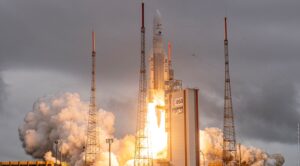
A space telescope that will peer deeper into the universe than any other is on its way to its destination beyond the moon after a long-anticipated launch Dec. 25.
Webb liftoff on Ariane 5 to unlock secrets of the Universe
Saturday, 25 December 2021 12:00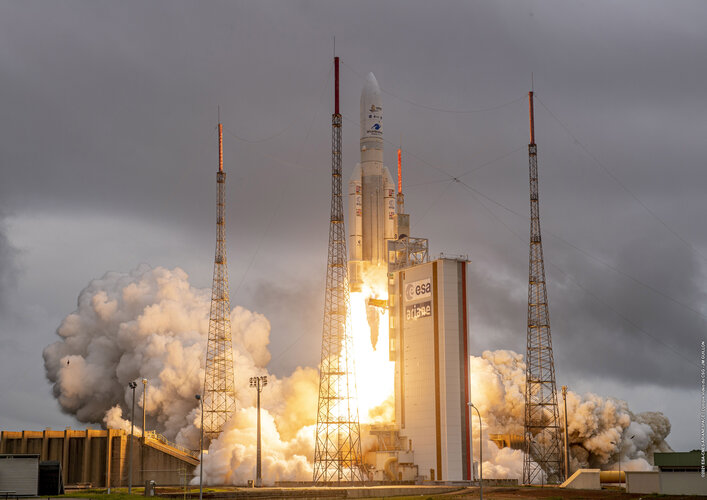
The James Webb Space Telescope lifted off on an Ariane 5 rocket from Europe’s Spaceport in French Guiana, at 13:20 CET on 25 December on its exciting mission to unlock the secrets of the Universe.
Liftoff in images: Webb on Ariane 5
Saturday, 25 December 2021 11:57
The James Webb Space Telescope lifted off on an Ariane 5 rocket from Europe’s Spaceport in French Guiana, at 13:20 CET on 25 December on its exciting mission to unlock the secrets of the Universe.
Space telescope launched on daring quest to behold 1st stars
Saturday, 25 December 2021 11:30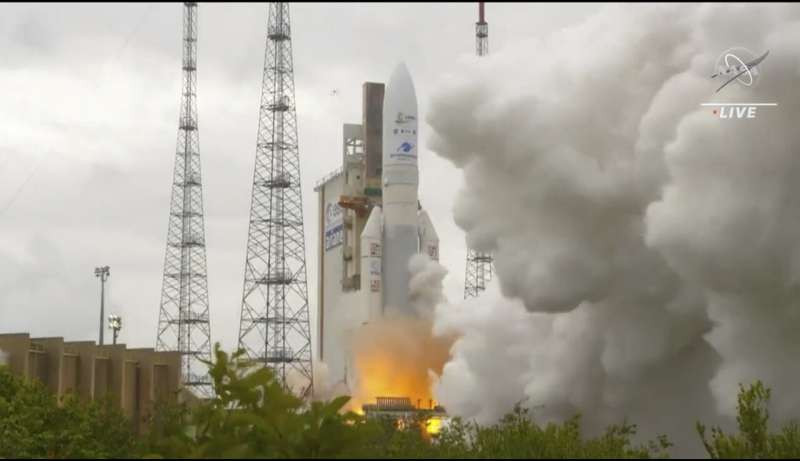
The world's largest and most powerful space telescope rocketed away Saturday on a high-stakes quest to behold light from the first stars and galaxies and scour the universe for hints of life.
NASA telescope set for launch on million-mile voyage
Saturday, 25 December 2021 10:28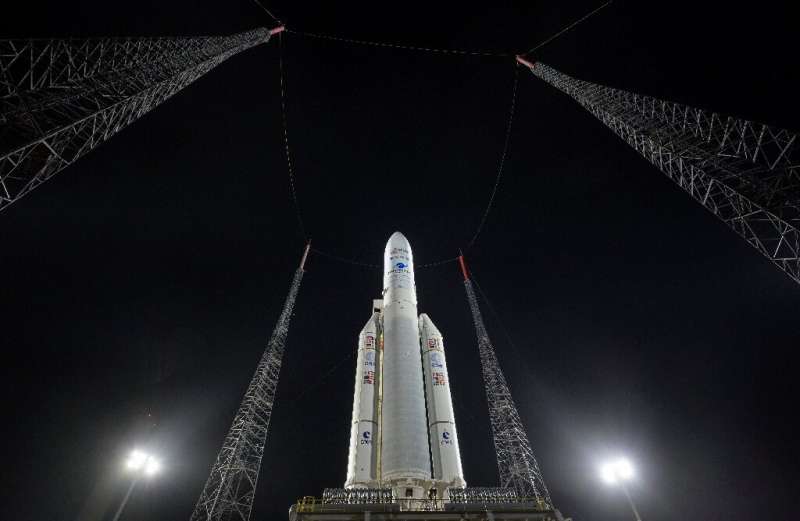
The world's most powerful space telescope is set to blast off on Saturday to its outpost 1.5 million kilometres (930,000 miles) from Earth, after several delays caused by technical hitches.
The James Webb Space Telescope, some three decades and billions of dollars in the making, will leave Earth enclosed in its Ariane 5 rocket from Kourou Space Centre in French Guiana.
UPDATE:Space telescope launched on daring quest to behold 1st stars
The launch, scheduled in a brief window after 9:20 am (1220 GMT), will send the telescope on a month-long journey to its remote orbit.
It is expected to beam back new clues that will help scientists understand more about the origins of the Universe and Earth-like planets beyond our solar system.
Best wishes to Webb from space
Saturday, 25 December 2021 09:00 Video:
00:02:49
Video:
00:02:49
From one space flier to another, ESA astronaut Matthias Maurer shares a message of support for the James Webb Space Telescope (Webb) launch, from ESA’s Columbus science laboratory on the International Space Station.
Matthias is currently living and working in space for his first mission known as Cosmic Kiss. He describes themission of Webb as part of humankind’s biggest adventure, as we explore the cosmos to understand our place within it.
Webb is the next great space science observatory following Hubble, designed to answer outstanding questions about the Universe and to make breakthrough discoveries in all fields of astronomy.
Webb on Ariane 5 poised for launch
Friday, 24 December 2021 08:12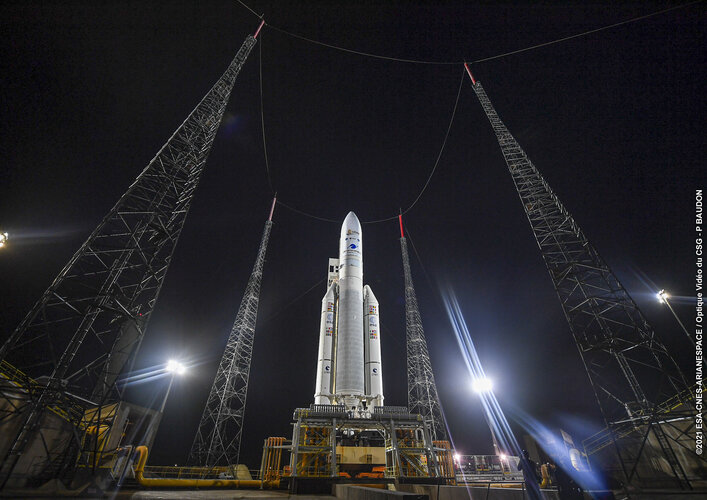 Image:
Image:
The James Webb Space Telescope is safely stowed inside the fairing of ESA’s Ariane 5 launch vehicle, which is now on the launch pad undergoing final checks and fuelling for a targeted liftoff at 12:20 GMT / 13:20 CET on 25 December from Europe's Spaceport in French Guiana.
Webb will be the largest, most powerful telescope ever launched into space. As part of an international collaboration agreement, ESA is providing the telescope’s launch service using the Ariane 5 launch vehicle. Working with partners, ESA was responsible for the development and qualification of Ariane 5 adaptations for the Webb mission and
NorthStar expanding to Luxembourg after $45 million funding round
Thursday, 23 December 2021 19:06
Canadian startup NorthStar Earth & Space plans to set up European headquarters in Luxembourg, after getting an investment from the country’s government-backed venture capital fund.
ESA moving ahead on new Copernicus missions despite lack of U.K. agreement
Thursday, 23 December 2021 19:06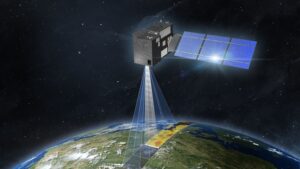
With a deadline for an agreement between the United Kingdom and the European Union on British involvement in, and funding for, Copernicus come and gone, the European Space Agency is pressing ahead on several missions in the hopes a deal can eventually be reached.
EXPLAINER: Veteran Hubble vs. new Webb space telescope
Thursday, 23 December 2021 18:12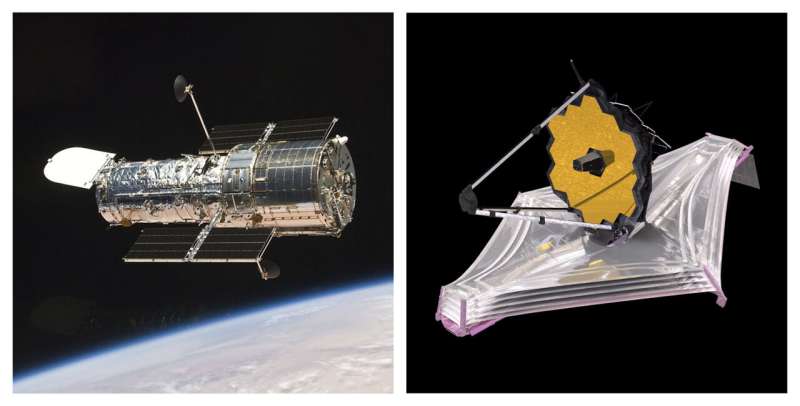
Don't ask astronomers to choose between the Hubble Space Telescope and the new kid on the cosmic block, the James Webb Space Telescope.
Webb on Ariane 5 roll-out to the launch pad
Thursday, 23 December 2021 17:44
On Thursday 23 December, the James Webb Space Telescope, safely stowed inside the fairing of ESA’s Ariane 5 launch vehicle, left the final assembly building for roll-out to the launch pad at Europe’s Spaceport in French Guiana.
French Guiana awaits historic Webb telescope launch
Thursday, 23 December 2021 17:07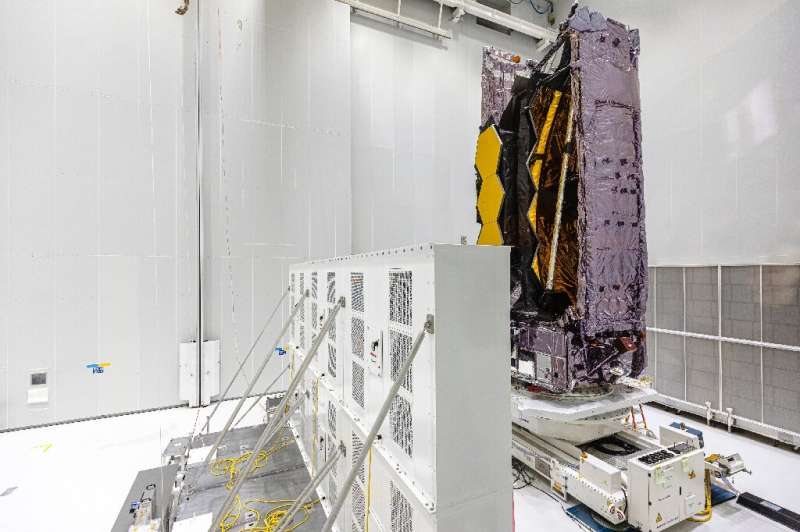
Like kids dreaming of presents under the tree, the scientists at the Jupiter control room at the Guiana Space Centre in Kourou are patiently waiting for December 25.
The James Webb Space Telescope—soon to become the most powerful ever to be launched into space—after technical and weather delays is set to take off on Christmas Day from the base in France's South American department.
"We can't wait for it to launch," says Jean-Luc Mestre, engineer and vice-director of operations at the French National Centre for Space Studies (CNES).
This rocket's payload, the Webb telescope, is a piece of technology worked on by thousands of people for over a quarter of a century.
"Everything is ready," Mestre adds. "Now all we need is the right weather."
For days heavy winds and rain have lashed the dense tropical forest surrounding the base, though you'd never know it from inside the vault-like control room, its windowless walls dominated by a bank of glowing screens.
Webb mission trailer
Thursday, 23 December 2021 16:00 Video:
00:03:29
Video:
00:03:29
Webb is the next great space science observatory following Hubble, designed to answer outstanding questions about the Universe and to make breakthrough discoveries in all fields of astronomy. Webb will see farther into our origins – from the formation of stars and planets, to the birth of the first galaxies in the early Universe.
The telescope will launch on an Ariane 5 from Europe's Spaceport in French Guiana.
Webb is an international partnership between NASA, ESA and the Canadian Space Agency (CSA).
Find out more about Webb in ESA’s launch kit and interactive brochure.
Kepler plots relay network to serve thousands of satellite terminals
Thursday, 23 December 2021 15:07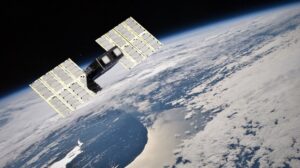
Kepler Communications plans to use a Spire Global nanosatellite launching late next year to test a terminal it hopes to someday deploy by the thousands to create a mesh network of data-relay satellites.

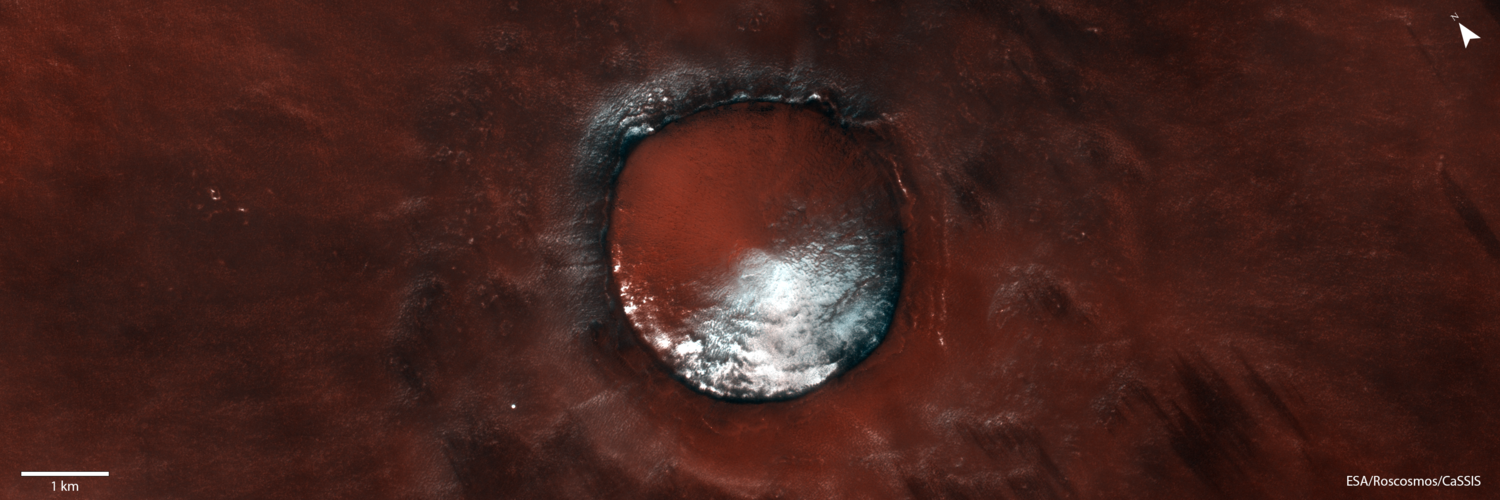 Image:
Red velvet Mars
Image:
Red velvet Mars